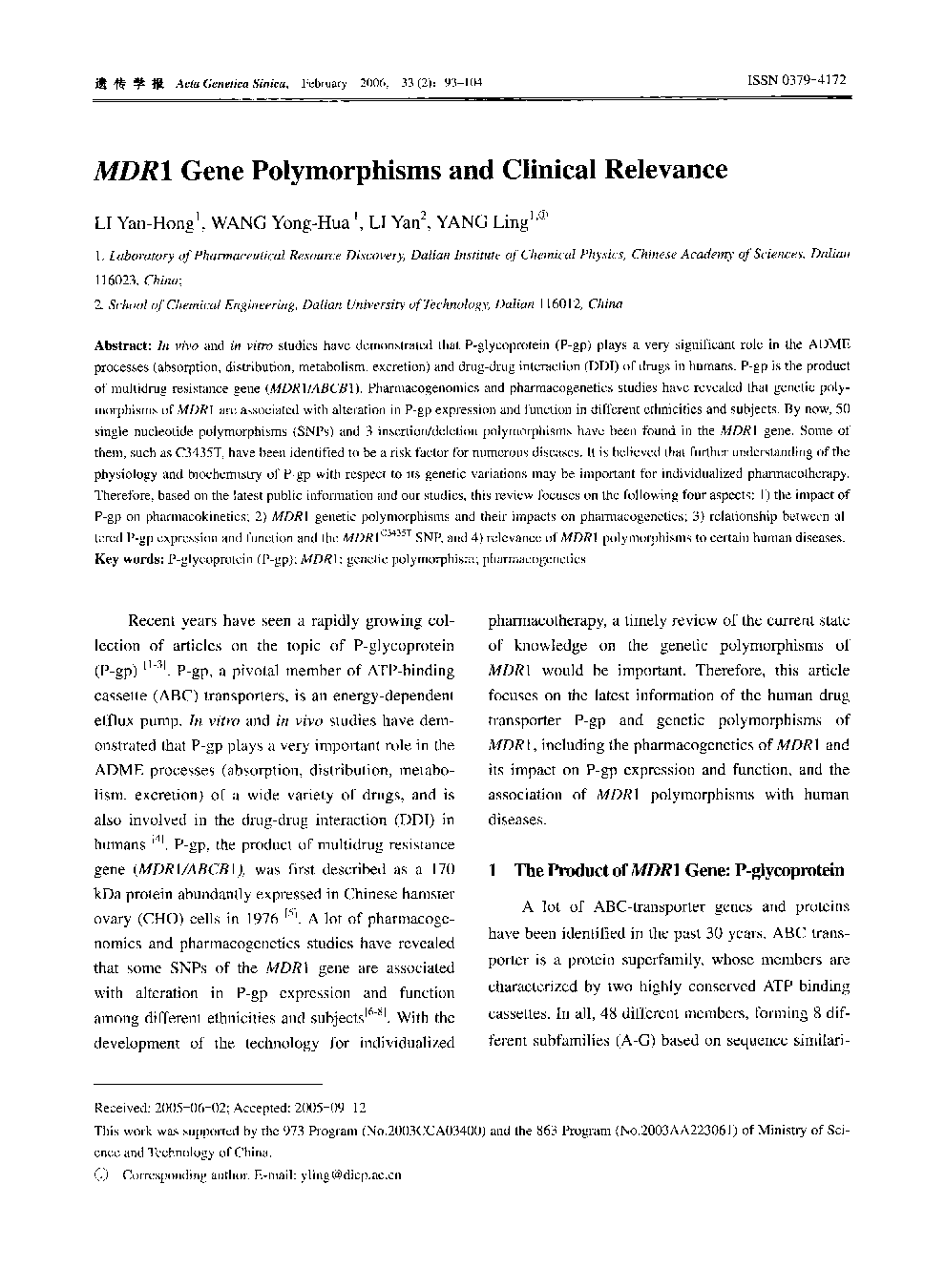| Article ID | Journal | Published Year | Pages | File Type |
|---|---|---|---|---|
| 2811277 | Acta Genetica Sinica | 2006 | 12 Pages |
In vivo and in vitro studies have demonstrated that P-glycoprotein (P-gp) plays a very significant role in the ADME processes (absorption, distribution, metabolism, excretion) and drug-drug interaction (DDI) of drugs in humans. P-gp is the product of multidrug resistance gene (MDR1/ABCB1). Pharmacogenomics and pharmacogenetics studies have revealed that genetic polymorphisms of MDR1 are associated with alteration in P-gp expression and function in different ethnicities and subjects. By now, 50 single nucleotide polymorphisms (SNPs) and 3 insertion/deletion polymorphisms have been found in the MDR1 gene. Some of them, such as C3435T, have been identified to be a risk factor for numerous diseases. It is believed that further understanding of the physiology and biochemistry of P-gp with respect to its genetic variations may be important for individualized pharmacotherapy. Therefore, based on the latest public information and our studies, this review focuses on the following four aspects: 1) the impact of P-gp on pharmacokinetics; 2) MDR1 genetic polymorphisms and their impacts on pharmacogenetics; 3) relationship between altered P-gp expression and function and the MDR1C3435T SNP, and 4) relevance of MDR1 polymorphisms to certain human diseases.
